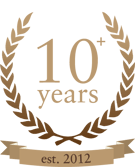investigation
Pediatric Vaccines Investigation
The Joseph Saveri Law Firm, LLP is investigating the effect on end-payors of an alleged anticompetitive scheme by drug manufacturer Merck & Co., Inc. to enhance and maintain its monopoly power in the market for rotavirus vaccines sold in the United States.
Through its investigation, the firm has learned that Merck may have engaged in an anticompetitive vaccine bundling scheme whereby Merck leveraged its monopoly power in multiple pediatric vaccine markets to maintain its monopoly power in the rotavirus vaccine market. Merck’s actions have allowed it to charge supracompetitive prices to purchasers of its rotavirus vaccines.
Merck is one of the world’s largest vaccines manufacturers and a leading manufacturer of vaccines in the United States. It is the sole United States manufacturer in the markets for multiple pediatric vaccines and the dominant seller in the rotavirus vaccine market, marketing its vaccine under the trade name RotaTeq. Its only competitor in that market is GlaxoSmithKline plc (GSK), which markets its rotavirus vaccine under the trade name Rotarix.
Merck was the only seller of rotavirus vaccine in the United States from 2006 until 2008, when GSK received approval to market Rotarix. Before the threat of competition from GSK, Merck had contracts that offered “bundled” discounts that would condition prices on loyalty to a bundle of Merck vaccines. In preparation for GSK’s introduction of a competing rotavirus vaccine, Merck added a condition to its contracts that required customers to buy all or nearly all of their pediatric rotavirus vaccines from Merck or face substantial price penalties on all other Merck vaccines. This new bundle (Merck Bundle) meant that any customer who wanted to buy Rotarix from GSK had to be willing to accept substantial penalties on any RotaTeq the customer buys and substantial penalties on all other Merck vaccines (including those for which there is no other supplier).
The Merck Bundle substantially forecloses the rotavirus vaccine market to GSK (and other potential competitors), resulting in artificially-inflated prices across the rotavirus vaccine market. Thus, instead of decreasing the price of RotaTeq when GSK entered the market—the normal result from competitive entry into a monopoly market—Merck has maintained and increased the price of RotaTeq. As a result, consumers are paying artificially inflated prices for rotavirus vaccines.
Please contact the firm if:
- You purchased RotaTeq in the past four years
- You provided reimbursements for RotaTeq purchased by your members or insureds in the past four years
- Or you would like to learn more about this investigation
Any information you provide will be kept strictly confidential as provided by law.

